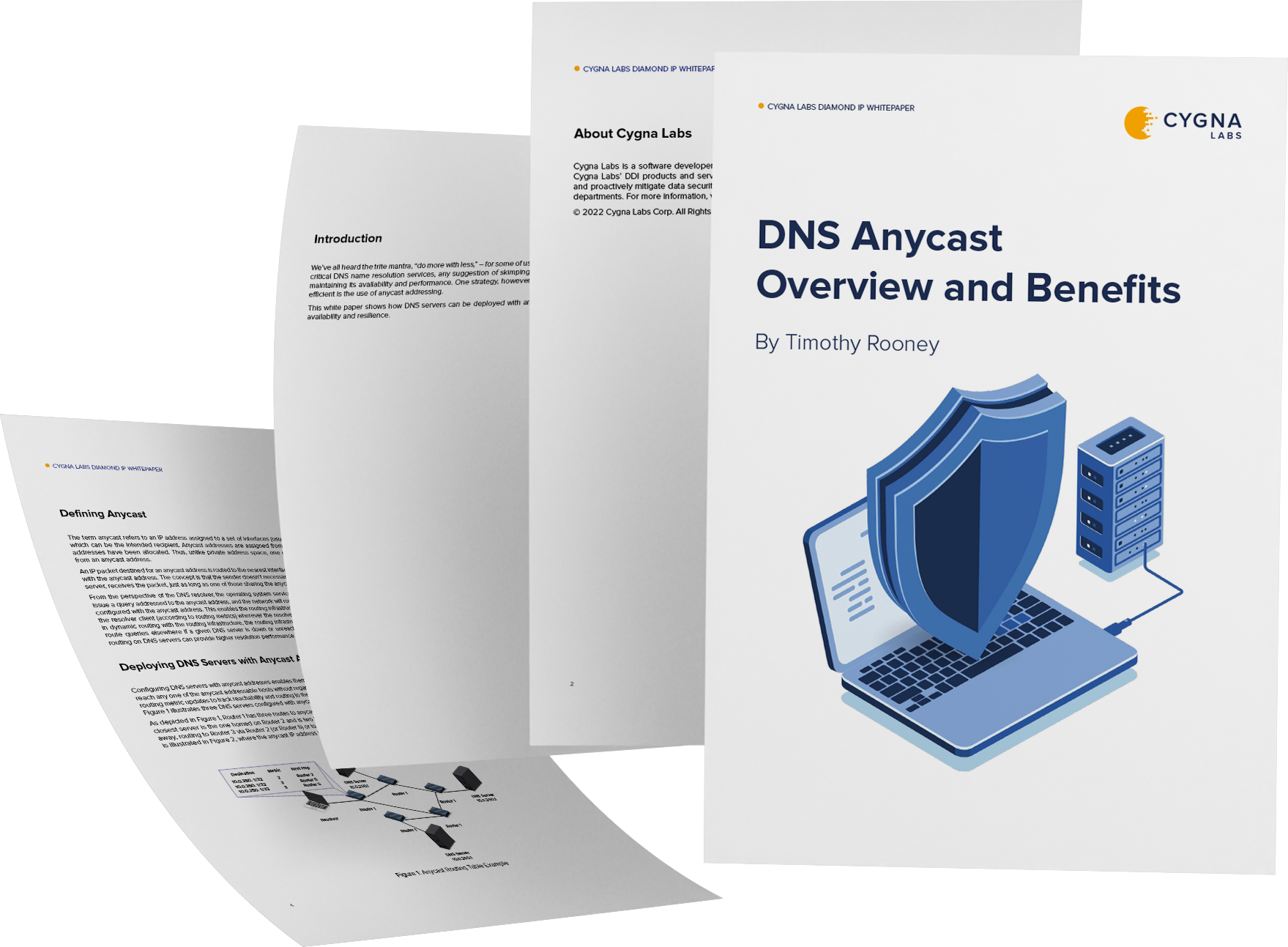W H I T E P A P E R
W H I T E P A P E R
DNS Anycast Overview and Benefits
Protection against malware with DNS firewalls

DNS Anycast Overview and Benefits
The term anycast as applied to IP addressing refers to an IP address assigned to a set of interfaces (usually belonging to different nodes), any one of which can be the intended recipient. An IP packet destined for an anycast address is routed to the nearest interface (according to routing table metrics) configured with the anycast address. The concept is that the sender doesn’t necessarily care which particular host, in this case a DNS server, receives the packet, just as long as one of those sharing the anycast address receives it (and responds).
Anycast addressing can provide simpler resolver configuraiton, optimized query routing in accordance with the routing protocol in use, and also improved resliency against DNS server failures as well as denial of service attacks. Effective DNS anycast deployment does require some effort in assuring consistency of DNS information across anycast-addressed servers and in configuring routing daemon(s) to particiipate in optimal packet routing. This white paper offers an introduction to DNS anycast, how it works, and the benefits and challenges of deployment.
